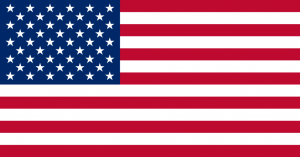This post is modified from a UU service I led about International Women’s Day.

As we celebrate International Women’s Day in the United States, there are some things I think you should know.
On International Women’s Day, one of the top internet searches is “International Men’s Day.” If you didn’t know, International Men’s day is in November. But people only search for it in March when we celebrate International Women’s Day. On Twitter, 40% of all tweets about International Men’s Day occur on – International Women’s Day. For some reason, many people are deeply uncomfortable with the existence of this holiday, even though it has been around for over 100 years.
The United Nations Office of the High Commissioner on Human Rights created the Working Group on the issue of discrimination against women in law and in practice in 2011 to identify good practices related to the elimination of laws that discriminate against women. In December of 2015, the group issued a report on the status of women in the United States. The group sent a three person delegation to investigate for 10 days in Washington DC, Alabama, Oregon and Texas. Some of their key findings:
– The United States has not yet ratified the Convention on the Elimination of All of Forms of Discrimination Against Women or CEDAW, and is one of only seven countries to have failed to do so.
Not listed in the UN Report, but a fact familiar to me from my own following of this issue, is that opposition to CEDAW stems largely from the Christian right who objects to the fact that many countries who have ratified the treaty have gone on to legalize abortion or liberalize their abortion laws. Abortion is legal in the United States, at least nominally so and last year at our General Assembly, Unitarian Universalists passed a statement of conscience supporting Reproductive Justice. However, the World Congress of Families on the other hand is vocal and active in opposing US ratification of CEDAW because they fear it would hamper their efforts to make abortion illegal in the United States.
Moving on, the UN working group noted that”
Women hold 19.4% of Congressional seats and 24.9% of seats in state legislatures. This ranks us 72nd in the world in terms of women’s representation in government.
Not only do we have a lack of representation of women in government, some women cannot vote at all.
“changes in voter identification laws which increase bureaucratic requirements for voter identification, in particular are problematic for women who change their name in marriage. And policies which reduce the number of voting centers can make registration and voting less accessible for the poor, of whom a majority are women.”
Side note, for more information about Unitarian Universalists working to restore the Voting Rights act, look up the James Reeb Project.
The report continues,
“we are shocked by the lack of mandatory standards for workplace accommodation for pregnant women, post-natal mothers and persons with care responsibilities, which are required in international human rights law. The US is one of only two countries in the world without a mandatory paid maternity leave for all women workers. The Group regards it as vital that 14 weeks paid maternity leave for pregnancy, birth, and post natal related needs be guaranteed for all women workers in public and private employment and advises that best practice is payment from a social security fund which does not impose the direct burden on employers.
“In the United States, the wage gap is 21%, affecting women’s income throughout their lives, and increasing women’s poverty in old age. During the last decade little improvement has been made in closing it. Education increases women’s earnings but does not eliminate the gap, which is in fact largest for those with the highest levels of educational attainment. Women’s earnings differ considerably by ethnicity: Afro-American, Native American and Hispanic women have the lowest earnings.”
“Women own over one third of US firms, mainly in small and medium size businesses. However, the Small Businesses Administration has a stated goal of awarding only 5% of federal contracts to women-owned businesses. This goal has never been reached.”
In the United States, maternal mortality has increased by 136% between 1990 and 2013. These numbers also hide distressing ethnic and socio-economic disparities. Afro-American women are nearly four times more at risk to die in childbirth. States with high poverty rates have a 77% higher maternal mortality rate.
The working group acknowledges the significant efforts deployed at the legislative and institutional levels to lower the prevalence of violence against women. However, they share the concerns on the alarming high rates of violence against Native-American women. We also share the concerns regarding the fatal consequences for women of lack of gun control, in particular in cases of domestic violence. Our group also deplores police brutality and the increased number of homicides of Afro-American women by the police. Our attention was also drawn to numerous cases of violence against LBTQ women, including homicides.
I suggest you read the whole report, which elaborates on the points above and also discusses gender disparities in poverty, access to health care and reproductive justice in further detail.
The last thing I think you should know as we plan to celebrate International Women’s Day in the United States is that the Department of the Treasury has announced last year that they will soon put a women on our $10 dollar bill. This was met mostly with approval and in that sense, we are doing better than our allies across the pond. In the United Kingdom, British feminist Caroline Criado-Perez advocated for putting a woman on their 10 pound note. Jane Austen was selected. However, during her campaign, Criado-Perez was subject to relentless threats of violence that went on for days. At one point during the frenzy of hate filled messages, she counted fifty men threatening to rape her in a single hour. Now I’m not saying that American feminists are never treated this way. For example, political analyst and writer Zerlina Maxwell was treated similarly when she suggested that teenagers be instructed about sexual ethics and consent as to reduce incident of sexual assault. She also received rape threats for days on end. However, no one has subject our Treasury Secretary Jacob Lew to such abuse when he announced that there would be a woman on the American $10. Good job, America!
So who will be the woman we put on the $10? My top three picks are Emma Lazarus, Rachel Carson, and Rosa Parks.
Writing in a op-ed for the New York Times, Linda Chavez wrote:
Emma Lazarus is my nominee to be the first woman on U.S. currency. Lazarus’ words, inscribed on the base of the Statue of Liberty, have come to symbolize America as a nation of immigrants. She was no immigrant herself, having been born into a prominent New York family whose Sephardic Jewish ancestors traced their roots back to colonial times. Nonetheless, she managed to capture the unique aspects of American immigration. What other country in the world has welcomed so many people from across the globe and given them the opportunity to rise as high as their talents and hard work would take them? Most important, the United States confers on immigrants an equal claim to consider themselves Americans as those born here.
Lazarus’ words are a profound statement of American Exceptionalism. They remind us of who we are and where we come from:
Give me your tired, your poor,
Your huddled masses yearning to breathe free,
The wretched refuse of your teeming shore.
Send these, the homeless, tempest-tost to me,
I lift my lamp beside the golden door!
And they remind us, too, of what we’re capable of doing: Turning those tired, poor, huddled masses into Americans. At a time when immigration once again roils American politics, putting Emma Lazarus’ on the bill would be a fitting tribute not only to women but to these principles.
Rachel Carson
Rachel Louise Carson was an American marine biologist and writer. During her career working for the US Bureau of Fisheries she began to notice the harmful impact that pesticides, especially DDT had on wildlife. She was concerned as early as the mid 1940’s and gathered evidence for many years. In 1962, she published her second book, Silent Spring which documented the harms of pesticides ranging from damage to fish and wildlife to impacts on human health, and as suggested by the title – the extinction of several species of birds. Although the book was reviewed by other scientific experts at the time, Carson immediately faced harsh criticism from chemical companies like DuPont. Others accused her of being a communist. However her work was very influential and inspired the passage of the Federal Insecticide, Fungicide, and Rodenticide Act – a law which many of us owe the safety of our drinking water, seafood and environment to today. She is credited by many to be the mother of the modern environmental movement, using science as the basis for a change in policy. Although she died of breast cancer in 1964, Carson was posthumously awarded the presidential medal of freedom by Jimmy Carter in 1980.
Rosa Parks
Many Americans know the story of Rosa Parks and her role in kicking off the Montgomery bus boycott in 1955. But history has sanitized her legacy and there is so much more to her that we should learn. Rosa Parks organized local chapters of the NAACP at a time when the organization was outlawed. She helped black women who were victims of sexual assault, most notably Recy Taylor who was raped by a group of white men in 1944. Parks led the effort calling for a criminal investigation and justice long before the Second Wave of feminism or Take Back the night rallies when feminists fought to bring the unspeakable out into the light. She helped campaign for John Conyers when he was first starting out in politics and worked in his Detroit office until she retired in 1988. Parks was friends with Malcom X, believing that the Civil Rights Movement needed all kinds of people involved – from church leaders to radical activists. It saddens me that when I was in school I was taught Rosa Parks was just a lady who was tired on a bus and not the tireless and influential force for Civil Rights that she actually was. If you want to learn more, I strongly recommend the book “The Rebellious Life of Mrs. Rosa Parks.”
So, now that you know my picks, which American woman do you think should be on the $10?
See Also – Feminist Coffee Hour: Women on the $10





